Women and girls left ‘traumatised’ in aftermath of Haiti earthquake
More than 2,000 are dead and 130,000 homes destroyed after the 7.2 magnitude earthquake hit the impoverished country on 14 August
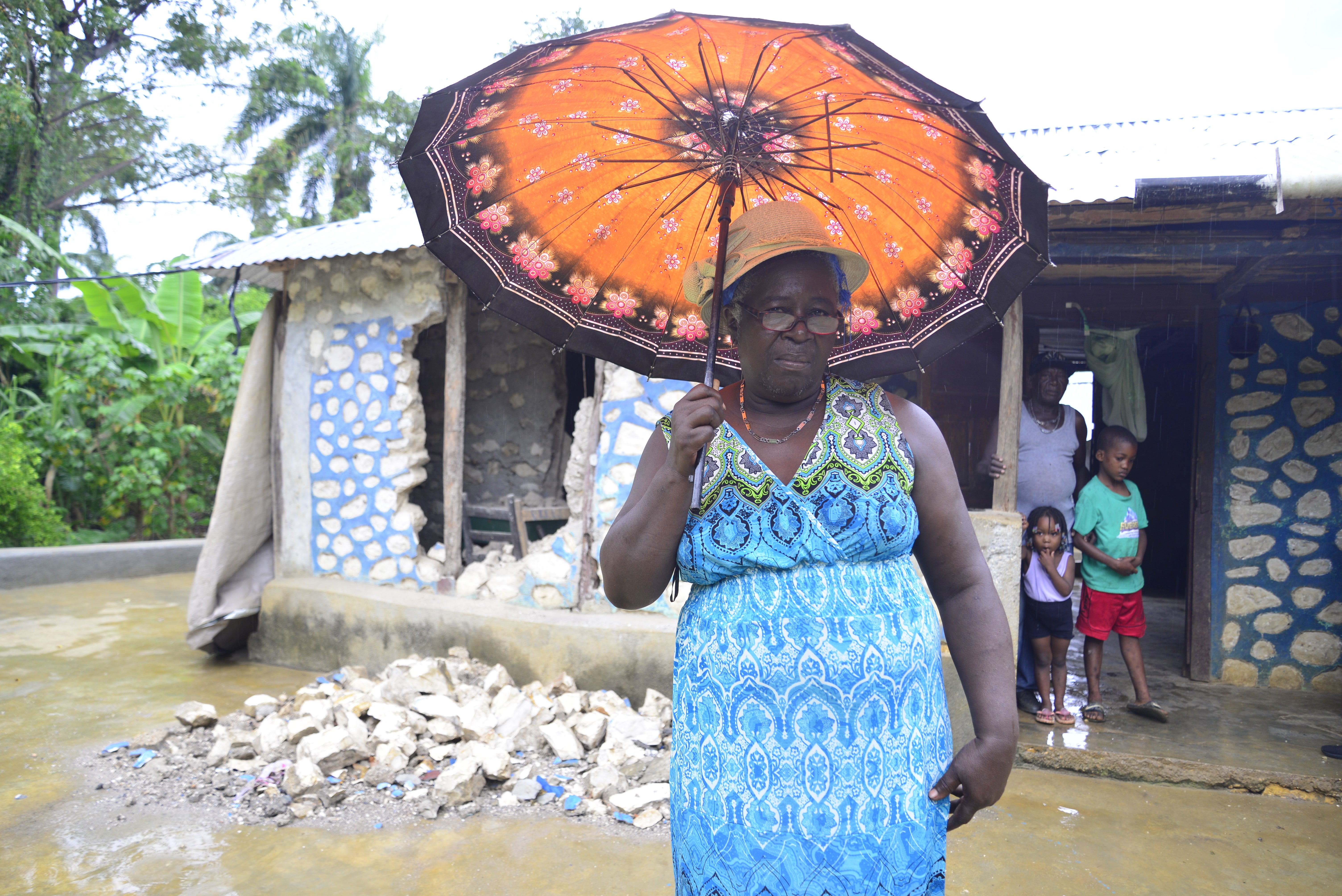
Women and girls who survived the catastrophic earthquake that hit Haiti earlier this month say they are “traumatised” and fear “all kinds of aggression” as they attempt to rebuild their lives in the aftermath of the disaster.
The 7.2-magnitude quake that struck the impoverished Caribbean country on 14 August left more than 2,000 people dead, more than 12,200 injured and at least 130,000 homes destroyed.
Hundreds are still missing, presumed buried under the rubble of collapsed buildings, and roads and houses now turned to ruins.
Paulène was at home with her family when the earth beneath them began to tremor. “I was going into the garden to pick some bananas to eat, when there was something telling me not to leave my blind mother at home. I took her hand and made her sit on a chair in the garden a few metres from the house,” she said.
“I felt the earth shaking under my feet and I started to call for help. The next thing I saw was my mother and my daughter on the ground. I ran towards the house and I saw that the wall had collapsed on my mother’s bed and onto other parts of the house.”
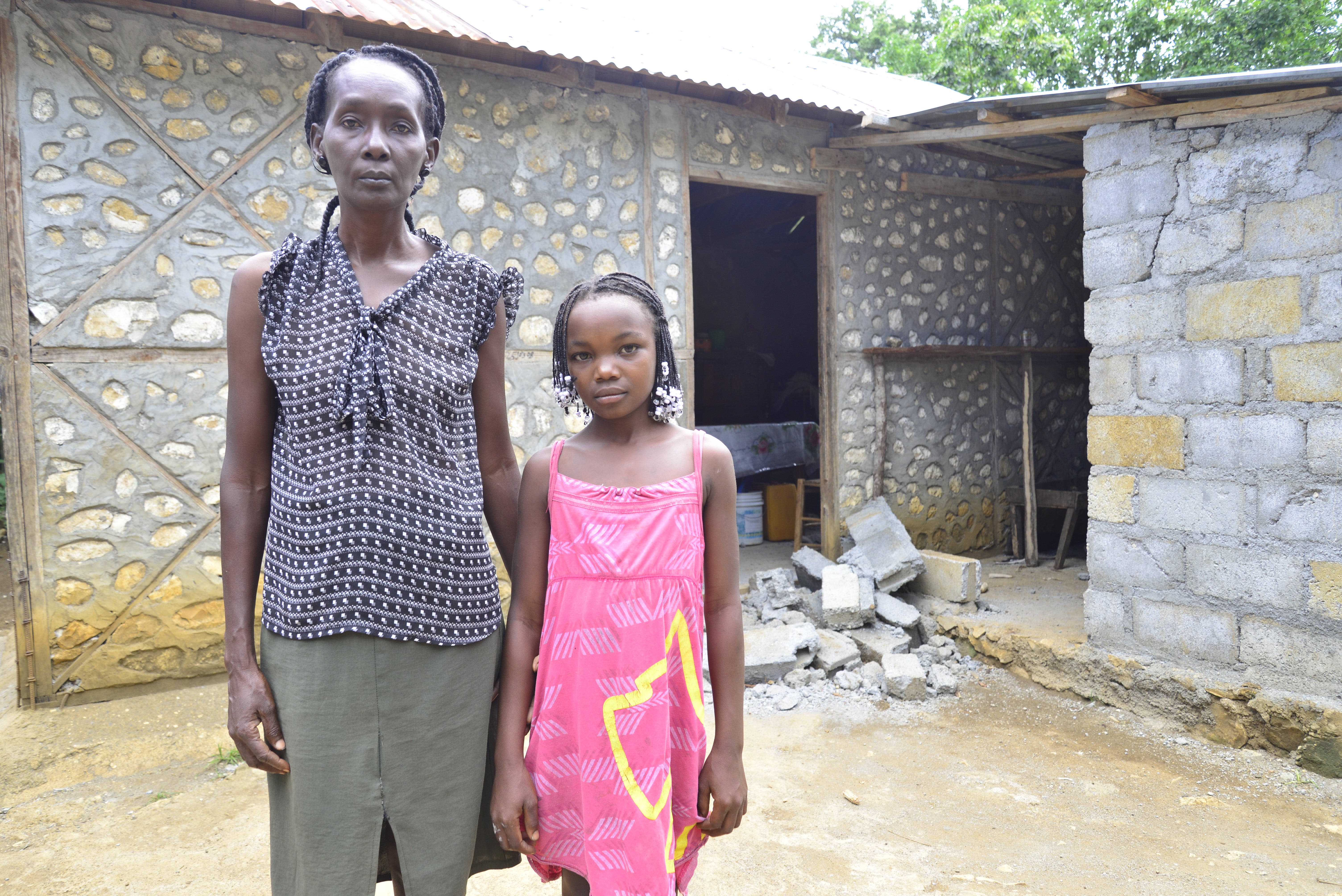
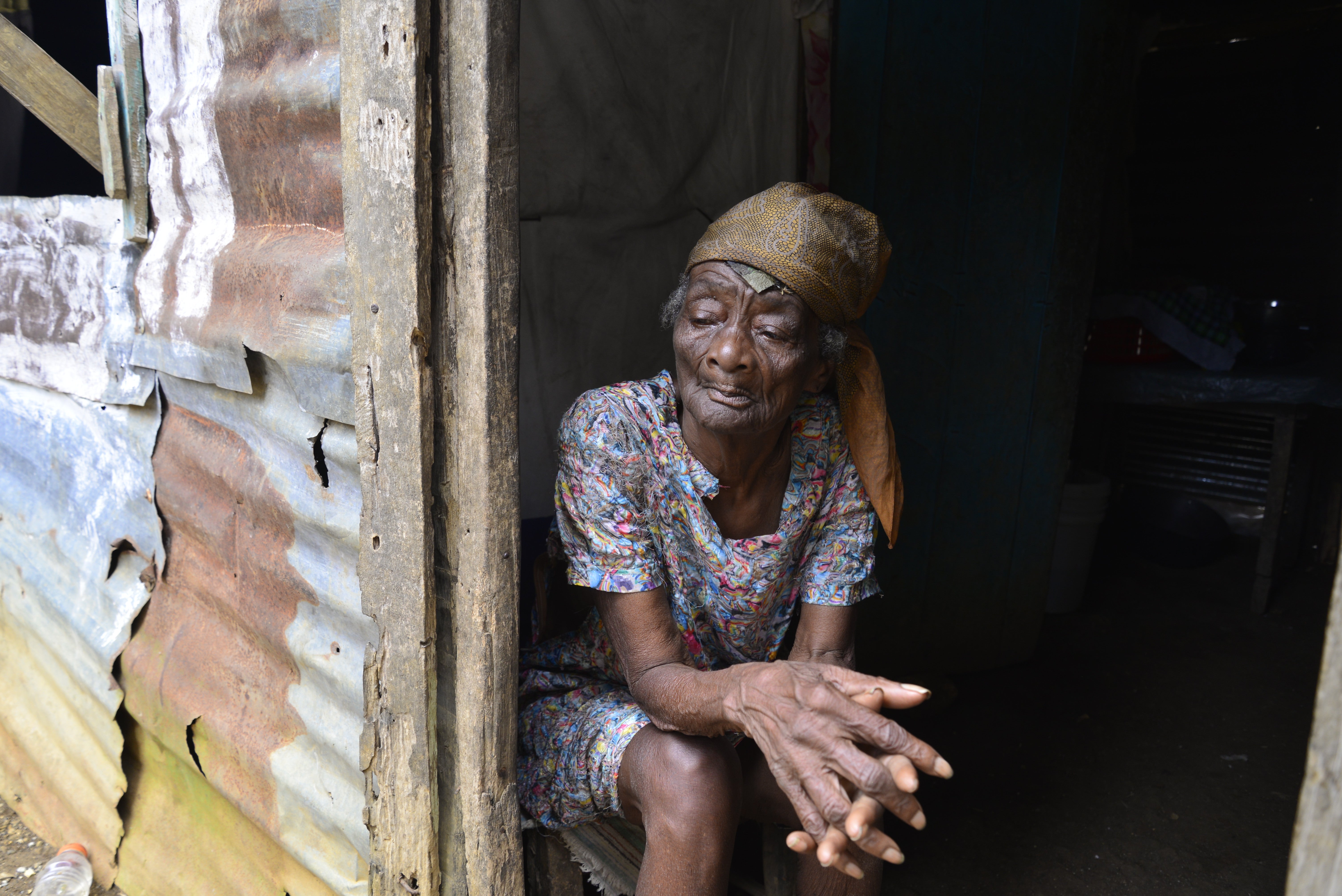
In the days immediately after the tragedy, rescue operations and relief efforts were severely hampered. Loose mudslides and rocks blocked access to communities in Haiti’s southern peninsula, while gang violence flared in the outskirts of the capital, Port-au-Prince.
Gangs blocked roads, hijacked aid trucks and stole supplies, forcing relief workers to transport medicine, food and water by helicopter. In some places, desperate crowds were reportedly seen fighting over bags of food.
After a gang leader called a truce to help relief efforts, aid has started to reach earthquake-battered communities – but it’s not nearly enough.
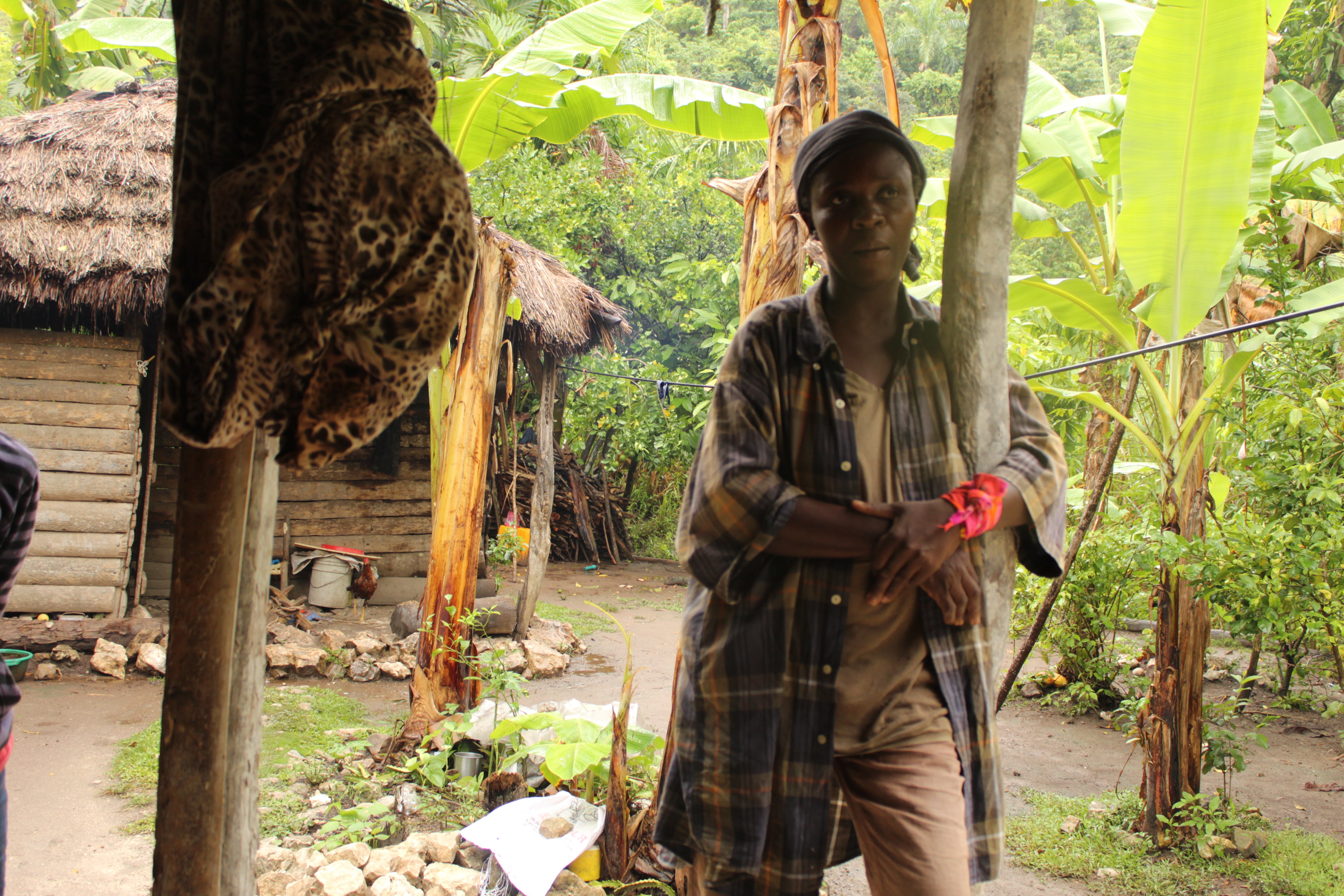
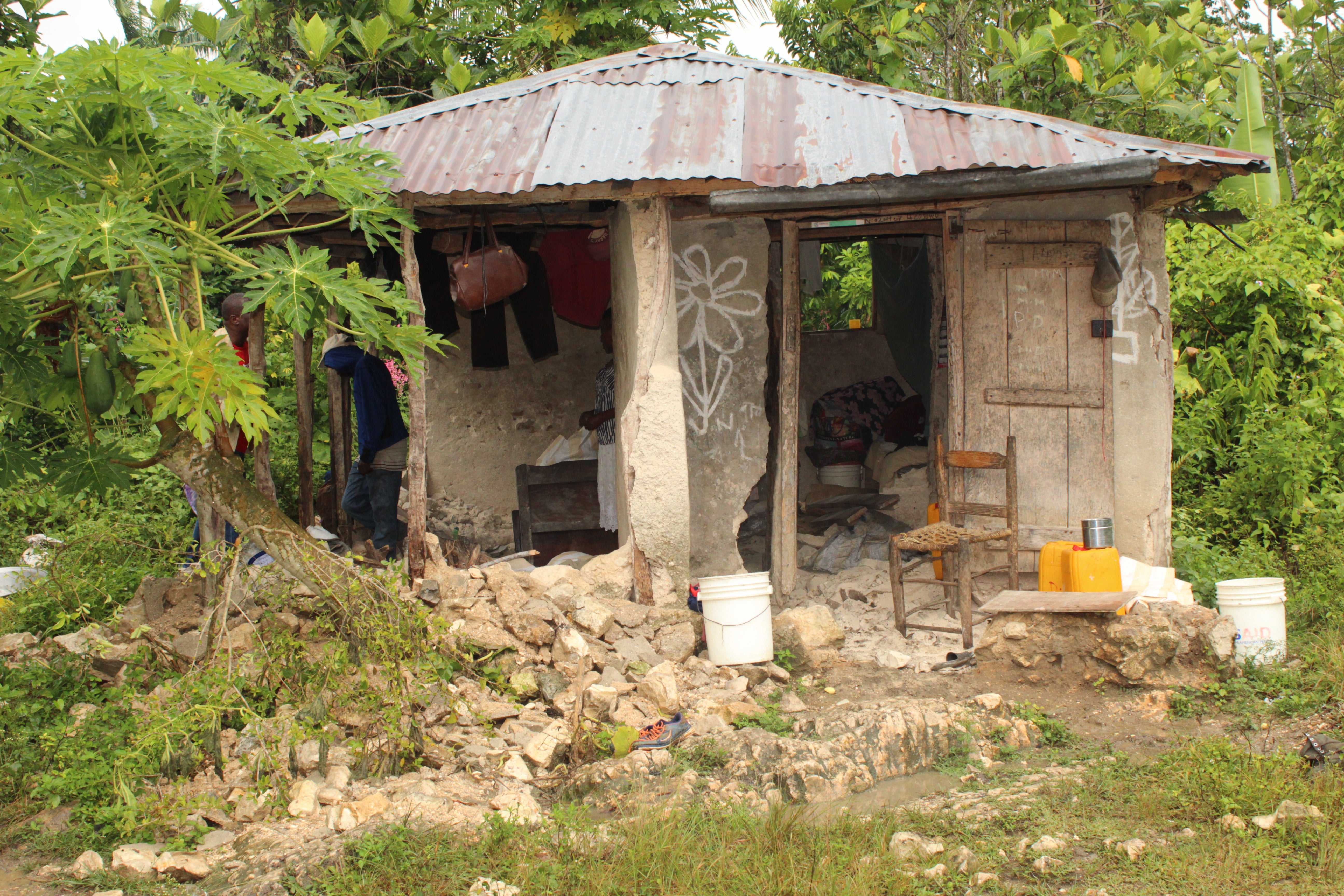
Marie Dieula, her husband and their four children are sleeping in the courtyard of their home, with no bed, no drinking water or hygiene products, and no adequate heating. They are hungry and traumatised.
Ms Dieula, who has chronic anaemia, says she “felt a great shock in [her] heart” when she realised that “the walls of [her] house had fallen to the ground”. Her husband has suffered non-stop headaches and dizziness ever since the quake.
Another mother-of-four, Felix Ezeline, has been living on the streets with her children under a makeshift shelter for the past fortnight. On the day before the earthquake struck, Ms Ezeline went to purchase wholesale goods for her small restaurant business. Everything was destroyed.
She describes her family’s living situation as “frightening” because she is “exposed to all kinds of aggression” on the street.
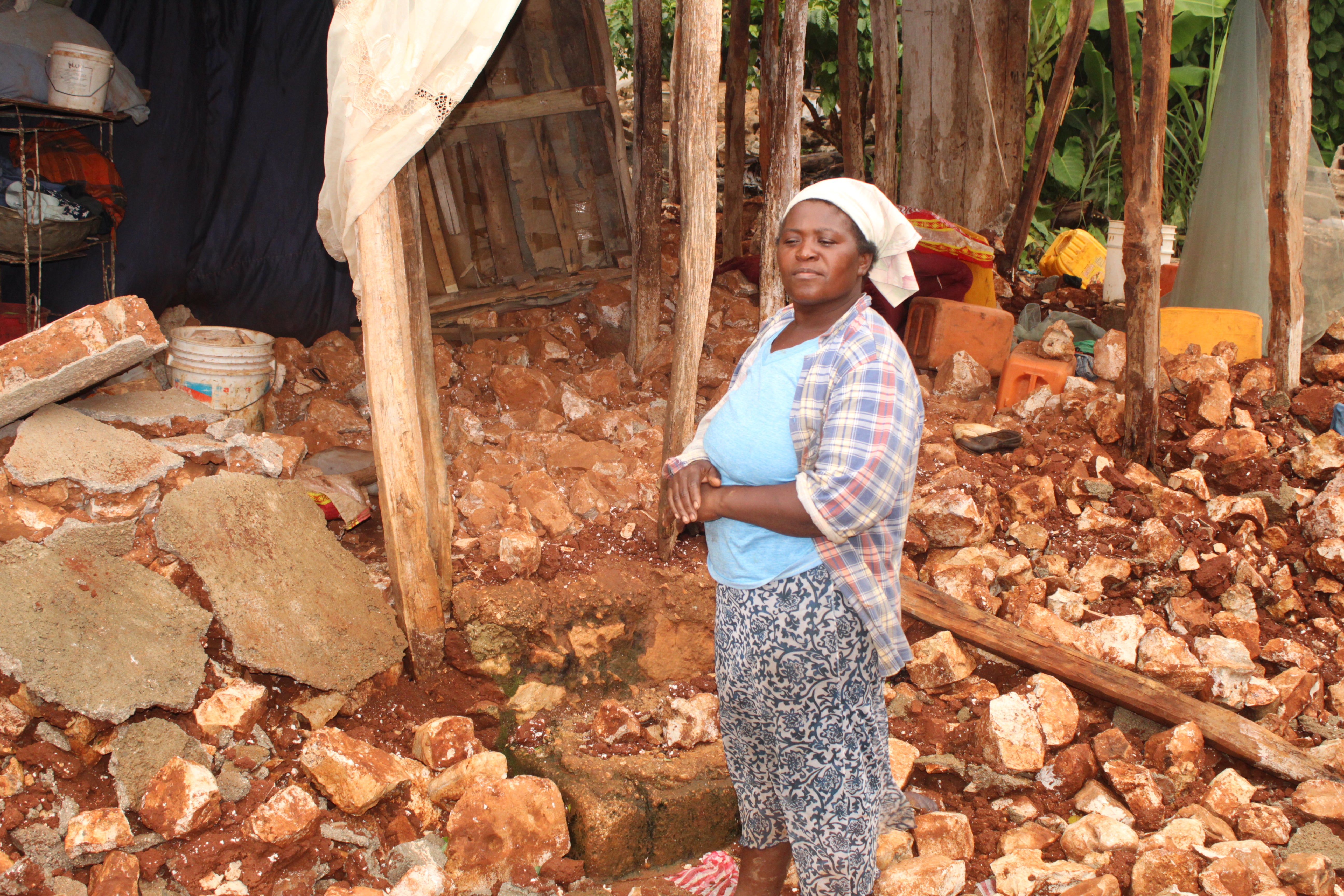
Haiti was already reeling from a political crisis after the assassination of its president, Jovenel Moïse, on 7 July which left the country in a state of heightened tension and instability.
It was also still recovering from a devastating 7.0-magnitude earthquake in 2010 that struck far closer to Port-au-Prince, killing tens of thousands of people.
To this date the exact death toll from the 2010 quake is unknown with estimates ranging from 100,000 to more than 300,000. Some 1.5 million people were displaced as a result and tens of thousands of homes and buildings destroyed.
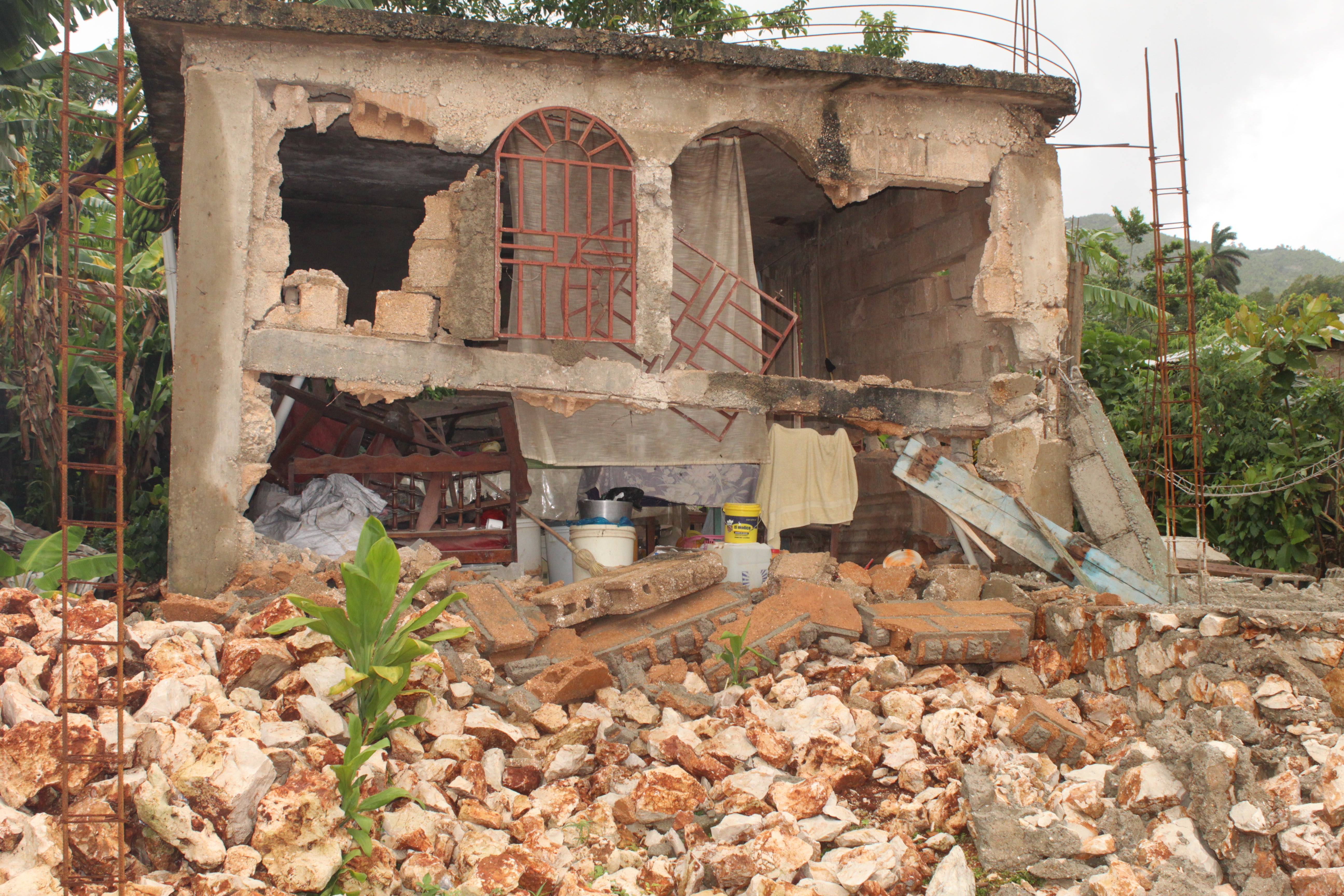
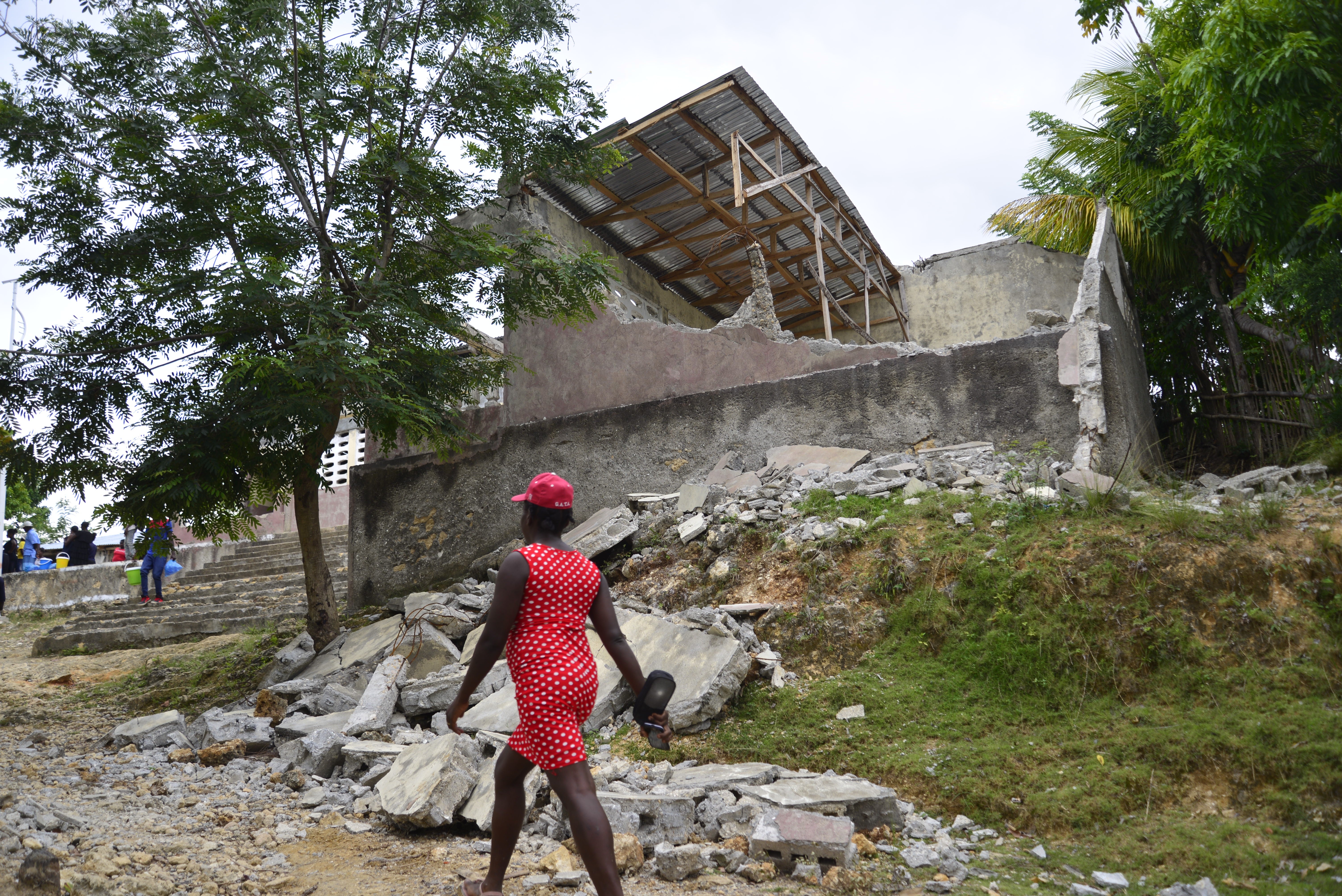
In the wake of the 2010 disaster, survivors were forced to spend years in overcrowded and unsafe makeshift shelters and victims were assaulted by armed men and gangs of youths, as police stations and courthouses lay in ruins.
More than 250 cases of rape in several camps were reported in the first 150 days after the earthquake, according to a 2011 Amnesty International report that noted many advocacy groups considered that a small fraction of the true number.
Just three days after this month’s earthquake, survivors sleeping outside in tents and makeshift shelters were pummelled by heavy rain and high winds from tropical storm Grace.
Charities and NGOs providing earthquake relief efforts have called for donations to help fund rescue missions, as well as get clean water, shelter and treatments for those who are sick and injured.
ActionAid, which responds to humanitarian crises, emergencies and disasters around the world, is appealing for donations to help emergency teams on the ground in Haiti.
The charity is aiming to assist at least 2,000 households with immediate shelter and emergency food, blankets, pillows, hygiene and dignity kits, protection services for women and girls, psychosocial support for traumatised children and their families, and cash support.
You can donate to ActionAid here.
Photos and interviews provided by ActionAid
Join our commenting forum
Join thought-provoking conversations, follow other Independent readers and see their replies
Comments
Bookmark popover
Removed from bookmarks